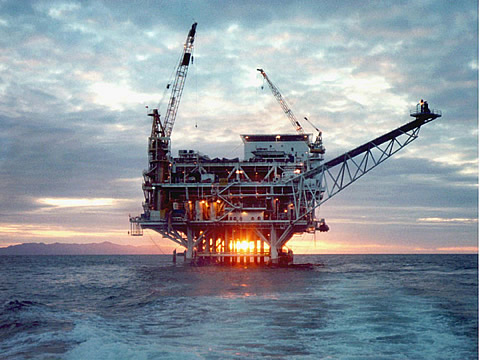Oil and Gas Outlook [May 2016]

Oil is expected to go through a long period of low demand that will keep prices plunged. Different factors contribute to this conclusion, most important of them being:
- Shale gas technology finding its way to other regions besides US [like Poland in Europe]. Further adaptation of the technology will drive economies towards shale gas and will provoke its universal use. Oil demand might have come to an end, at least for applications where it can be easily replaced by shale gas.
- OPEC countries seem to understand the next reality and move towards different applications in order to transform their economies. Economies that depended too heavily on oil prices are collapsing [such as Venezuela, Russia] and some of them move boldly forward in order to change their production identity as soon as possible. Saudi Arabia has just announced the generation of world’s biggest state investment fund that is said to reach 2T$ and will aim at helping the country enter the post- oil era. For reasons of comparison, second largest non private fund is that of Norway, estimated at 850B$.
- Improvements in internal combustion engines are unprecedented and commercial diesel / gasoline cars have reached consumption record lows below 2 l/100km. Hybrid vehicles have reached that low much earlier.
- Political developments also show several countries trying to become more independent from oil and gas gradually; Germany focuses on reducing oil and gas imports every year in an attempt to loosen dependence on Russia and Arabic countries. Republican’s possible presidential candidate Trump has spoken often about cutting ties with Saudi Arabia. Mediterranean, European and African countries are offering greater incentives each year for energy reduction actions. All of the above take the world economy toward an oil free route, at least for energy purposes.
- Advances in the field of biocompatible, biodegradable polymers reduce the need for synthetic polymers. One of the most known problems due to petrochemical pollution is ‘white pollution’; it has been suggested that polyethylene and polystyrene should be replaced by or manufactured with biodegradable polymers.
Factors affecting positively oil sector include:
- Petrochemical industry. Plastics and composites tend to replace other families in various applications including biomedical applications, insulators, commodities, furniture, car industry, etc.
- 3D printing is especially friendly towards the polymers industry. Most polymers can be used for the manufacturing of virtually any object via 3D printing
- Especially in the US, plastics industry is expected to keep growing due to their choice of gas instead of oil as a raw material.
Newest advances in the field of gas transportation include the development of membranes for acidic content removal from natural gas streams. Some of the most novel membranes utilize ionic liquids and some ‘soft’ co-polymers like the PEBAX family. The development of such ‘soft’ membranes can lead to reduced costs for transportation of natural gas, especially in sulphur rich fields thus improving gas competitiveness in global market.
